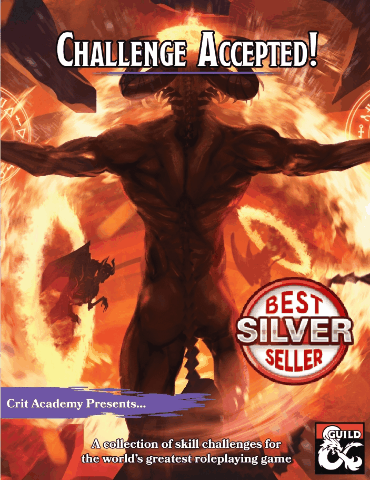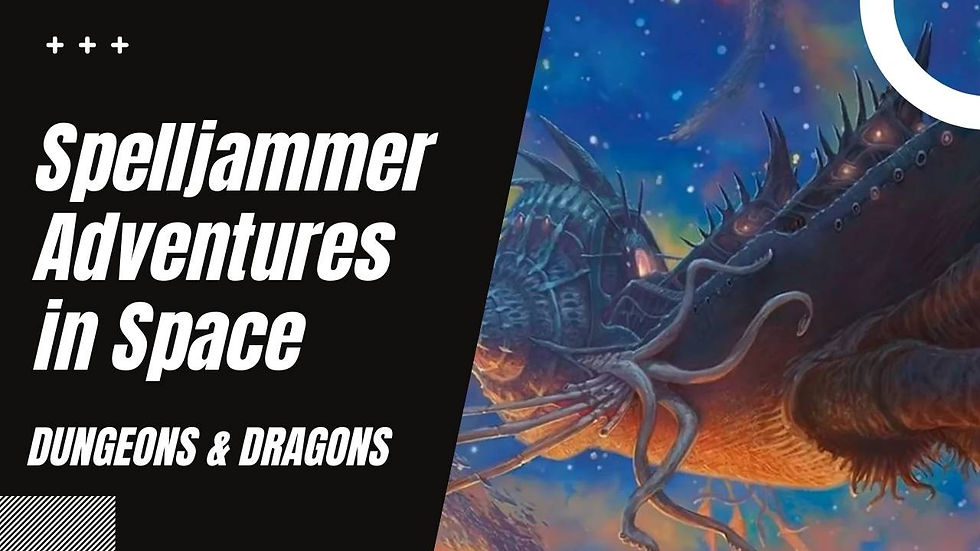How to Add Foreshadowing in Dungeons & Dragons
- Justin Handlin

- Mar 31, 2022
- 4 min read

How do I become a better Dungeons & Dragons DM?
One of the best ways is to learn the building blocks of storytelling. When it comes to running a game of Dungeons & Dragons, the Dungeon Master (DM) styles, prep, and play styles vary from person to person. This means that there are near endless ways to run a fun and engaging game for all the players. One of the most obvious ways is in the planning of the campaign. Some DMs use modules, others plot every detail, and others just kinda wing it off of bullet points. In each of these situations, the result depends greatly on the DM. But, when it comes to adding just a little extra preparation for a game, we can foreshadow upcoming significant events with just a small bit of prep work.
What is Foreshadowing?
Essentially foreshadowing is a literary device in which a writer gives an advance hint of what is to come later in the story. Foreshadowing often appears at the beginning of a story, or a chapter, and it helps the reader develop expectations about the upcoming events. Dungeons & Dragons and other storytelling vehicles can also leverage this powerful tool. Although it tends to be underused in roleplaying games, it is almost always effective. Especially utilizing the variety of skills the characters have can be a great way to allow those less than frequently used skills to take the spotlight and clue the player in on something that doesn't come to fruition until much later.
Let’s take a look at a couple of examples of foreshadowing that could play out in a Dungeons & Dragons game.
When the characters start their adventure they hear rumors of seeing the spirit of the dearly departed, random objects flying across rooms into walls, and other similar supernatural oddities. Early investigations don’t really turn up anything of interest. Later on, after the characters gain a few levels, they are called back to the town because a rift to the ethereal plane has opened up and ghosts and other specters are possessing and terrorizing the locals.
During an early adventure clearing out kobolds from a local cavern, the characters learn that the kobolds were sent to the area by a patron. Unfortunately, they never learn the benefactor behind the kobold clan’s arrival, much less their reasoning. Further in the campaign, the characters start tracking the movements of a violent hydra in the area. A red dragon attacked and drove off the creature to claim the hydra's territory as its own. The kobolds were sent early on to weaken the hydra to ensure it would be no match for the dragon who is now roosting and setting up its lair nearby.
The ability to foreshadow is a powerful tool because it allows the players to experience the realization that the DM had it all planned out ahead of time. This really brings the roleplaying experience to a new storytelling level. Much more on par with a novel or movie. Most importantly, it ties everything together for the players and gives the feeling of a grand world of interconnected stories.
Never have a boring Monster or NPC Again!
Blow your Players away with fully fleshed Villains, Allies, and More!
Complete with stats, backstories, motives, and different ways to utilize them in your stories!
When it comes to foreshadowing, as the DM you’re able to control the way they are introduced. This can be as obvious, or as hidden as you like. I find that hiding the foreshadowing around skill checks makes those checks feel far more impactful. The trick to great foreshadowing is to do it in a way that your players will remember. In my personal experience, this happens best when it’s tied to their character's story, actions, or skill set. You can further this by putting more than one clue into your story. On their own, they may or may not be significant, but once the big reveal hits and a light bulb turns on and all the pieces come together, your players will applaud and celebrate.
In the end, foreshadowing is fantastic and can be as important as you want. They really don’t even have to impact the story and campaign if you don’t want it to. They are there to reward players who pay attention and allow them to participate and allow an opportunity for those players to shine. A simple example would be the wizard’s player deciding to visit a duke's library to read some of his materials. An investigation check reveals an indentation on the table of the last letter the duke wrote. The note may be mostly lore about the area or politicking, but in the margin is written: “...Lord Valen, poisoned?”. Later on, the characters may stumble across a noble whose brother Valen was killed and is seeking someone to uncover the truth. Now the character who went out of their way already suspects that Valen might have been killed. Now they can figure this information out with or without the library visit, but we’ve now rewarded that exploration pillar of the game. This allows the characters to maybe skip right to looking for an expert in poisons instead of needing to route out the secret themselves. It all comes full circle.
Thank you for reading our blog. If you enjoy the content and want to support us, visit our store or follow us on social media, join us on discord, youtube, and leave us a review.
Keep your blades sharp and spells prepared heroes!
*Crit Academy is an Affiliate of Amazon, DMsguild and DriveThruRPG*
















Comments